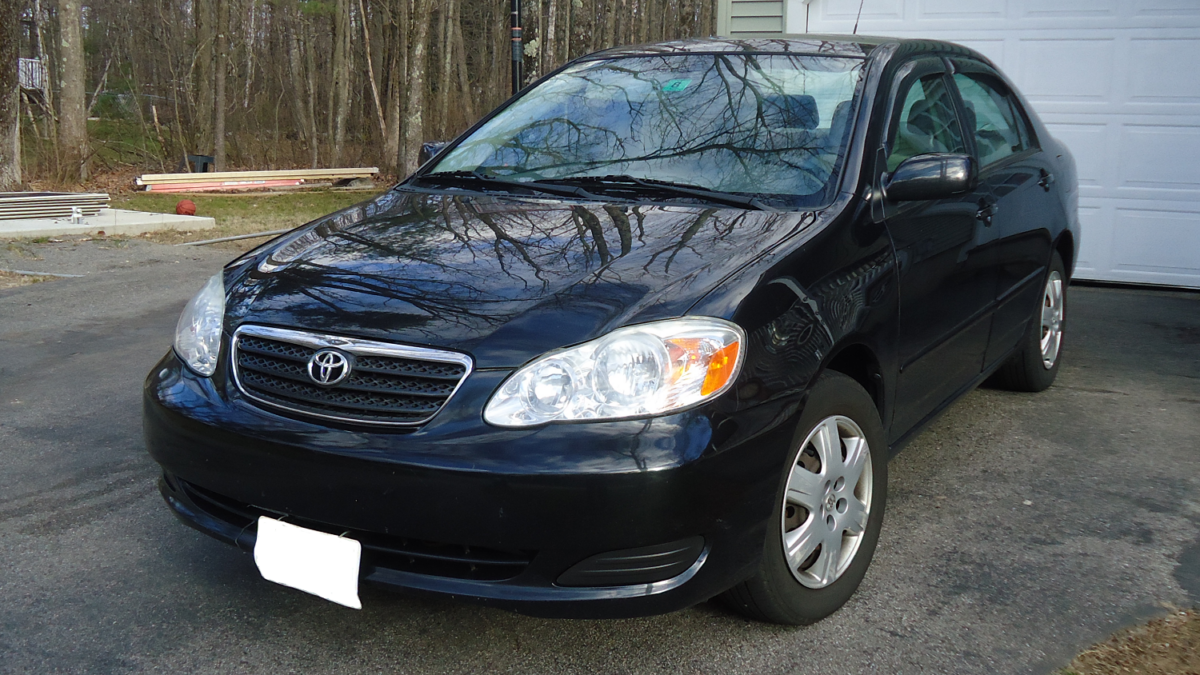For decades, people broke into the ranks of property ownership via the starter home. Often modest, quirky, and in need of various repairs, this was not to be the ultimate family home. But the starter home allowed people to shift from renting to equity-building. Alas, that dream has become more elusive, as The New York Times reported in 2022.
Many factors have dampened this dream, but almost all of them begin with the letter “R” and end with “egulations.” More and more Americans have seen the pathway from starter home to family homestead vanish amid a sea of red tape growing exponentially in front of them like kudzu along the interstate. Now another milestone on the road to adulthood — namely the ability to hit the open road — is being closed off.
Writing at Discourse Magazine, Addison Del Mastro charts the death of the starter car — small, economical, affordable, unsexy vehicles that offered people the opportunity to move from walking, public transit, or, God forbid, cycling into the resplendent joy that comes with travel in the climate-controlled cabin of your own automobile. As with starter homes, many factors seem to have contributed to the death of the starter car. Most of them emanate from the penumbras the idiots known as elected officials see when they strain really hard in an attempt to protect us from ourselves, rather than from themselves.
But there might be other factors at play. Years of a generally growing economy and cheap credit might have made us set our sights higher than we should have regarding the homes and cars that start our economic journey.
Keeping Car Payments to a Minimum
In Del Mastro’s piece, for example, he notes that at least 20 percent of payments for new cars exceed $1,000 a month, which is bonkers. I have purchased three cars in my life, though I have owned five. (Thanks, Mom and Dad!) The first was a 2006 model. And it was the only car I purchased new. The immediate depreciation that occurs when you drive a new car off the lot vastly outweighs the satisfaction of owning a new car, particularly in the age of certified pre-owned vehicles. I paid $335 a month.
When I upgraded to a larger, more family-friendly vehicle in 2007, albeit a used car, my payment jumped to about $365 a month. In May of 2020 — in hindsight, a primo time to buy a vehicle — I went all the way up to $390.
The three vehicle purchases roughly coincided with home purchases. We first bought a starter home when we had zero kids, and now we have a home with bedrooms for all three kids. Our monthly car payment has progressively declined in relation to our mortgage payment. And for a five-year period, I had no car payment whatsoever. I’m not always the wisest buyer, but I am a stickler for keeping the car payment as low as possible in relation to the overall monthly budget.
Starter Cars Won’t Be Luxurious
In keeping my monthly car payment low, I am somewhat of an outlier. Back in 2022, Twitter personality Car Dealership Guy shared a video in which auto dealership employees discussed their monthly car payments. None of them paid less than $1,000. Granted, the employees owned new vehicles, and they work in an environment that encourages new car purchases. Yet the only new car I’ve ever purchased came with the cheapest payment I’ve ever had.
The current state of the used-car market is generally abysmal. But when I peruse the websites of local dealerships, I can find a number of vehicles for less than $20,000. There’s a Honda Odyssey for $12,995. It does have 123,944 on the odometer, but it’s a Honda, so it’s a perfectly fine starter car. Or you could buy a Chevy Cruze with only 47,509 miles plus an increasingly rare standard transmission for only $14,999. Then there’s a Toyota Corolla for $14,995. It does have 95,648 miles on it, but it’s a Toyota, a notoriously difficult vehicle to kill.
Adjust to a Stalled Economy
Maybe, then, the problem isn’t regulations — though regulations are a huge, yuge problem — but instead the buyer’s expectations. The boom years that many of us experienced between President Jimmy Carter and the current president, President Carter Redux, gave us a sense of constant upward mobility. We didn’t need to settle. We could bask in the luxury afforded us by following Milton Friedman’s Permanent Income Hypothesis. The hypothesis states that consumers spend not based on current income but on expected future income.
Now, with the economy doing just great — assuming your present and future income can somehow outpace the deleterious effects of inflation and higher interest rates — it’s hard to decouple from our accustomed expectations. Ergo, the starter car can’t be a Chevy Cruze; it has to be more luxurious.
There are a variety of rentals in my area. Many cater to young professionals. They are not cheap, but they are cheaper than the mortgage payment for any house on the market that has amenities like floors and a roof, particularly when you factor in interest rates. In the parking spots for these rentals, there are always myriad luxury cars, not entry-level models. It’s safe to say these are cars in the $1,000-or-more-per-month category that Del Mastro noted.
Less Milton Friedman, More Sir Mix-a-Lot
While I have no insight into the finances of young professionals nor any opinion about how they spend their money — you can live in a yurt and buy a ski boat for all I care — it does suggest that expectations remain high. Generations past would have eschewed the BMW and saved for the starter home. And that was when interest rates far exceeded today’s rates, and homes required a minimum 20 percent down payment. Today, however, Americans want to graduate from college directly into the upper-middle-class life they’ve been promised, so they rent and go big on the vehicle.
It’s not a failure on their part. For years now, low interest rates and assurances of future prosperity have fostered unrealistic expectations. Now, though, it may be time for us to recalibrate as a society and remember that some purchases require patience.
As Tyler Durden told us, “You’re not your job. … You’re not the car you drive.” So, be like Sir Mix-a-Lot and open yourself up to the idea of buying a hooptie. They have more style than any new car on the market, anyway.









